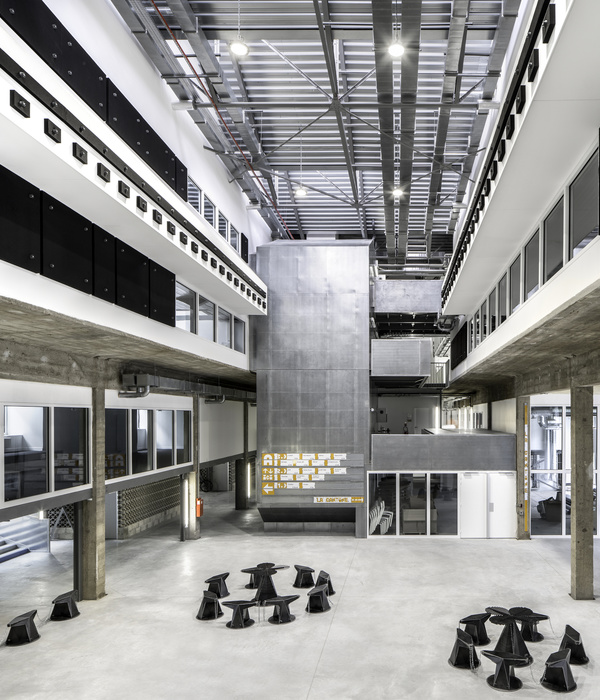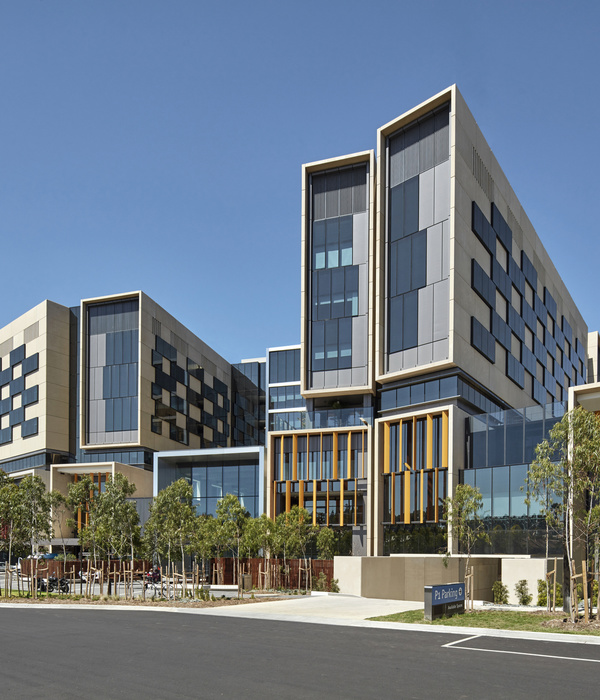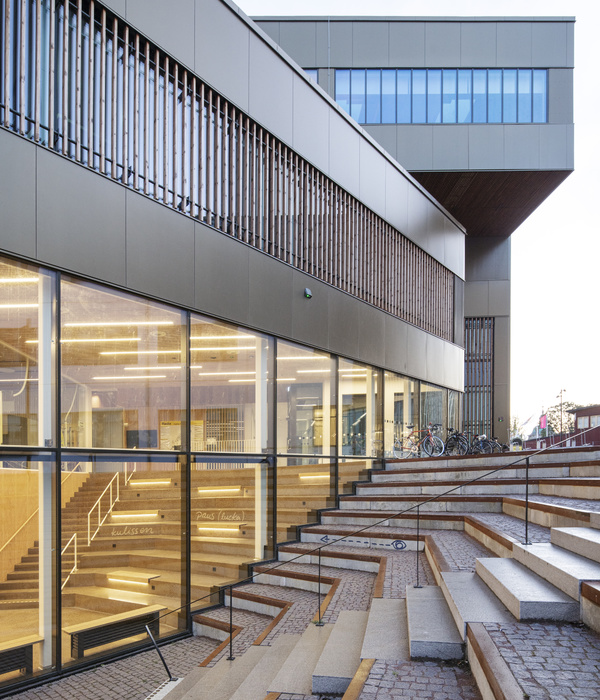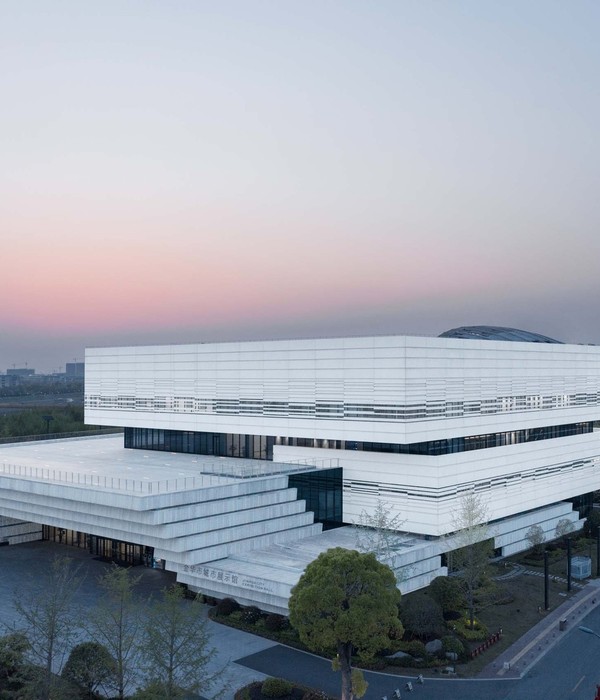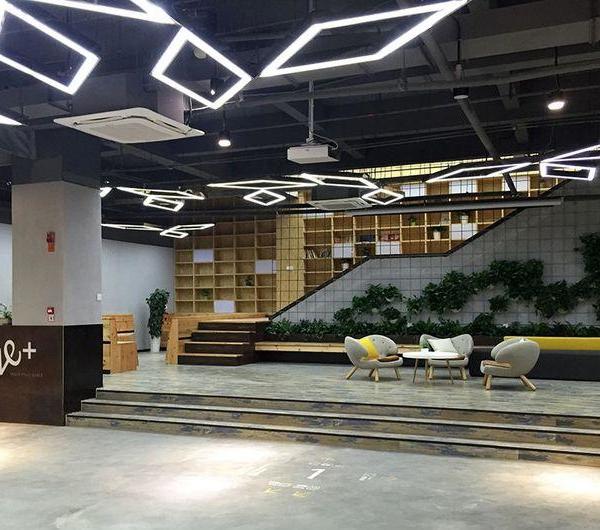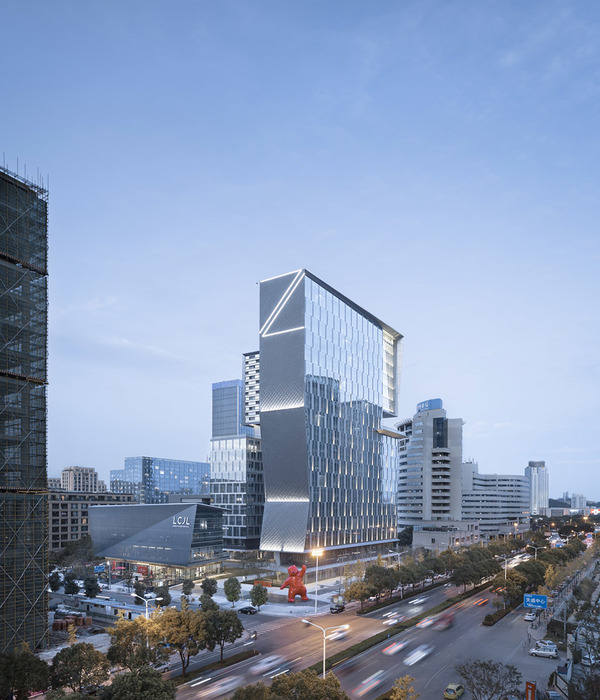Sitting at the edge of an industrial zone, Saint-Dizier’s new arts centre occupies a complex site close to a roundabout fed by several busy roads. Despite slotting discreetly into a generally undistinguished environment, the building serves as a notable defining element marking the town’s threshold.
Pod-shaped volumes
Echoing the soft folds of the surrounding countryside, the five parallel pods of varying heights give the building its name (fuseau) as well as its unusual silhouette. The linear layout of the bands of grey aluminium accentuate the fluid roofline, and the two long façades are covered in narrower strips of champagne-coloured cladding which swivel along the southern side to form louvres offering protection from the sun. Along the western edge, the pods curve outwards to form a canopy. At night, alternating strips of light repeated mirror-like at ground level transform the long glazed passageway into a display window that can be seen from the roundabout.
A complex of performance spaces
The arts centre is designed to host plays, concerts, dance performances, circus acts and special events for public and private users. The spaces therefore needed to be adaptable and multi-purpose.
At the heart of the building, the main auditorium occupies the three central pods. With retractable seating offering modular configurations, the auditorium can accommodate a seated audience of 1,100, or 1,800 standing. Two balconies on either side follow the curve of the walls, bringing the audience close to the stage. The tapering walls and part of the false ceiling are clad in thin horizontal wooden strips that give the space a welcoming and intimate character.
The northern pod is occupied by a space for contemporary music that offers a studio for rehearsal and recording as well as a multi-purpose room for lectures or exhibitions.
A festive foyer
Two stairways leading to the mezzanine floor run off the long passageway along the western side, which also houses the cloakrooms and public toilet facilities.
To the south, a spacious foyer of around 300 m2 is available for the audience from the main auditorium during shows; during the evening, a ticket office and large bar operate along the façade. In the summer, the foyer opens outwards towards the plaza and river thanks to four outsize pivoting glazed doors (4m x 6.4m). The area is independent from the rest of the building and can be hired separately. This system, as simple as it is spectacular, creates a friendly and festive space that blurs the boundaries between indoors and outdoors.
Landscaping
Mirroring the dynamic lines of the pods, the areas besides the building have been designed in east-west layers that hug the curves of the passing river. Previously covered over at this point, the river Ornel is now a feature that ties the landscape together, rooting the site into its surroundings and linking it to the town centre where the Ornel flows into the Marne.
On the north bank beside the plaza, a raised terrace overlooks the river. The generously planted carpark is designed in successive bands that follow the lines of the Ornel. Located in a flood zone, it includes a system for storing excess water in large planted infiltration basins. From the carpark, audiences reach the foyer that serves the main auditorium via an existing footbridge.
The gardens at the Fuseaux centre, with their alternating strips of low-lying plants and denser flowerbeds, mimic the building’s rhythm and set off the display window façade.
The building has become a beacon standing at the northern edge of the town, showing how an arts centre can help to stitch together disparate elements within a disordered urban landscape and become an important driver for regional development.
{{item.text_origin}}


